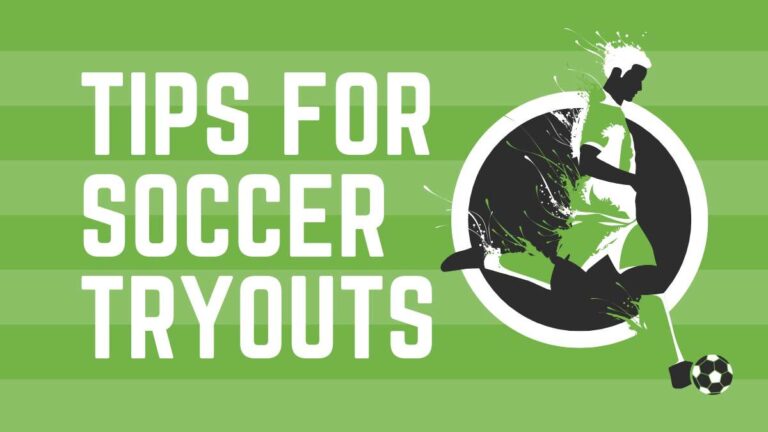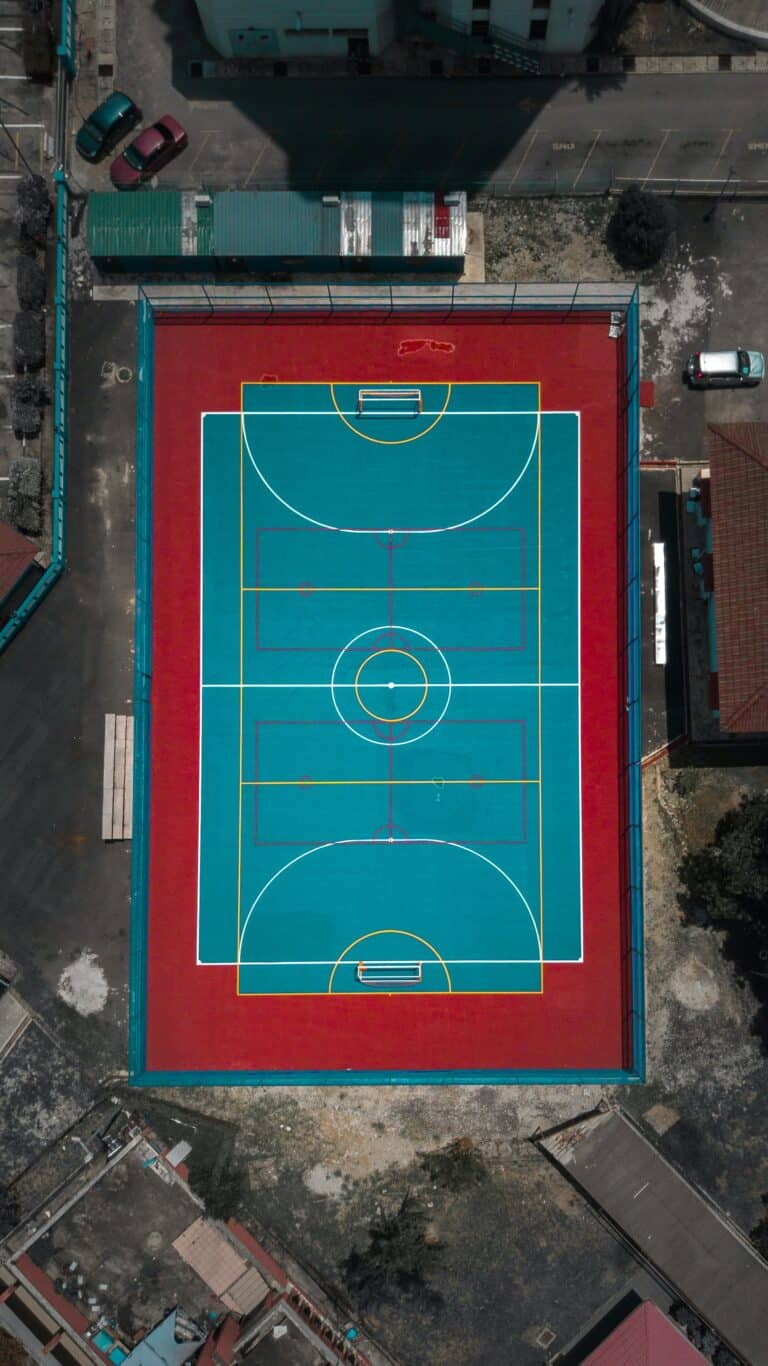7 Tips to Become a Better Soccer Defender
When it comes to soccer, a strong defense is the backbone of a winning team. The defenders play a crucial role in preventing goals, denying opponents’ scoring opportunities, and providing a solid foundation for the entire squad.
If you aspire to become a better soccer defender, there are key tips and techniques that can elevate your performance on the field. In this blog post, we will explore seven valuable tips that will help you enhance your defensive skills.
1. Master Your Positioning

Mastering your positioning is essential for being a good defender. It’s all about being in the right place at the right time, so you can block the opponent’s shots and passes.
One way to improve your positioning is to watch videos of professional defenders. Pay attention to where they position themselves on the field, and how they react to different situations. You can also practice drills that focus on positioning, such as shadow defending and zone marking.
Another important tip for mastering your positioning is to be aware of your surroundings. Know where your teammates are, where the opponent is, and where the ball is going to be. This will help you make better decisions about where to position yourself.
Finally, it’s important to be patient and adaptable when it comes to positioning. Don’t rush into tackles or challenges. Wait for the right opportunity to make a play. And be prepared to adjust your position as the game unfolds.
With practice and dedication, you can master your positioning and become a top-notch defender.
2. Improve Your Communication

Effective communication is vital for strong defensive play. It enables you to collaborate seamlessly with your teammates to protect the goal and keep the opposition at bay.
Engage in constant communication with your teammates on the field. Keep them informed about your positioning and the whereabouts of the opponents. Utilize simple calls like “man on” to alert them of an incoming opponent or “switch” to indicate a need for a change in defensive focus.
Hand signals can be an invaluable tool for communication, especially when you’re far away from your teammates on the field. Employ gestures such as a thumbs-up to indicate your readiness to receive a pass or communicate your intention to make a run.
Remember that your body language also plays a role in communication. Use it to your advantage by pointing in the desired direction or signaling your intent to receive a pass. Your teammates will pick up on these cues and adjust their play accordingly.
By prioritizing effective communication, you create a cohesive defensive unit that works together seamlessly, making it harder for the opposition to penetrate your defenses. So, speak up, signal clearly, and let your body language do the talking to elevate your defensive game.
3. Enhance Your Awareness
As a defender, having a complete view of the field is essential. Keep scanning your surroundings, including the ball, your teammates, and the opposing players. This helps you understand the game dynamics and identify potential threats quickly.
Being aware allows you to anticipate attackers’ moves. Pay attention to their body language, observe their preferred runs, and use this knowledge to your advantage. By staying ahead of them, you can position yourself correctly to intercept passes, make interceptions, or execute well-timed tackles.
Alongside individual awareness, developing a collective understanding with your fellow defenders is crucial. Know their positioning and movements, and collaborate to cover spaces and mark opponents effectively. By communicating and coordinating, you can create a unified defensive strategy that frustrates the opposition.
To improve your awareness, practice visualization exercises off the field. Imagine different game scenarios and mentally place yourself in various defensive situations. This hones your ability to read the game and make quick decisions.
4. Develop Strong Tackling and Marking Skills

Now, let’s dive into the importance of developing strong tackling and marking skills for defenders. These fundamental techniques are essential in thwarting the opposition’s advances and regaining possession.
Tackling requires finding the right balance between assertiveness and discipline. Timing is crucial – aim to cleanly win the ball without committing fouls. Practice proper techniques like the block tackle or slide tackle to effectively dispossess opponents while maintaining control and minimizing the risk of giving away free kicks or penalties.
In addition to tackling, effective marking is key for defenders. Close proximity to your assigned opponent is crucial, denying them space to receive the ball and limiting their impact on the game. Stay vigilant of their movements, maintain a tight marking distance, and use your body positioning to obstruct their path and steer them away from dangerous areas.
To enhance your tackling and marking skills, focus on improving your body positioning, balance, and timing. Work on your footwork to maintain agility and respond quickly to changes in direction. It’s also beneficial to study techniques used by elite-level defenders and learn from their expertise.
5. Improve Your Speed and Agility
The ability to cover ground quickly and change direction with ease is crucial for defenders in modern football. It allows the defender to keep up with fast-paced attackers and recover from defensive positions effectively. To improve your speed, incorporate speed training drills into your practice routine.
Work on exercises that emphasize explosive acceleration, such as sprints and shuttle runs. Additionally, dedicate time to develop your overall fitness through cardio exercises, as a higher level of fitness will contribute to your speed on the field. Agility is equally important for a defender.
Quick changes of direction and sharp turns can help you maintain close proximity to your opponent and make swift defensive maneuvers. Incorporate agility drills into your training, such as ladder drills, cone drills, or lateral movement exercises.
In addition to physical training, focus on improving your reaction time. Reacting swiftly to changes in the game and making split-second decisions can give you an edge over attackers. Incorporate reaction drills into your training regimen to sharpen your reflexes and decision-making abilities.
6. Study the Game and Opponents

Knowledge is power, and understanding the strategies, tendencies, and playing styles of both your team and the opposition can give you a strategic advantage on the field.
First and foremost, familiarize yourself with the game of soccer as a whole. Watch professional matches, study different defensive systems, and observe the tactics employed by successful teams. Analyze how defenders position themselves, communicate, and make decisions in different game situations. By expanding your knowledge of the game, you can gain insights that will positively impact your own performance.
Next, focus on studying your opponents. Before matches, research and gather information about the opposing team’s key players, their strengths, weaknesses, and preferred attacking strategies. Analyze their previous matches to identify patterns in their gameplay and individual tendencies. This knowledge will help you anticipate their moves, mark them effectively, and disrupt their attacking plans.
Do not forget that studying the game and opponents is an ongoing process. The more you invest in analyzing and understanding soccer, the better equipped you’ll be to make informed decisions and adapt your defensive approach based on the specific challenges presented in each match.
7. Develop Good Anticipation and Decision-Making Skills
The final tip to elevate your performance as a soccer defender is to develop good anticipation and decision-making abilities. These skills are quite important in staying one step ahead of your opponents and making effective defensive plays.
Anticipation starts with having a deep understanding of the game and having a high level of soccer IQ. To learn how you can improve your soccer IQ, read our article on how to improve your soccer intelligence.
You should observe the positioning of attackers, their movements off the ball, and the passing patterns of the opposing team. By doing so, you can anticipate their actions, predict where the ball is likely to go, and position yourself to intercept passes and make crucial tackles.
In addition to anticipation, making quick and accurate decisions is essential for a defender. You often have to make split-second choices under pressure. Assess the situation, evaluate the options available, and choose the most appropriate course of action. This could involve stepping up to intercept a pass, delaying an attacker to buy time for your teammates to recover, or making a well-timed clearance.
To develop these skills, incorporate decision-making drills into your training sessions. Set up scenarios that simulate game situations, forcing you to assess and react quickly. Focus on analyzing different outcomes and consequences of your decisions, enabling you to make better choices in actual matches.
Conclusion
Becoming a better soccer defender requires a combination of technical skills, tactical awareness, and mental fortitude. By implementing the seven tips discussed in this article, you can elevate your defensive game and make a significant impact on the field.
However, the journey to defensive excellence doesn’t end here. It requires consistent practice, dedication, and a thirst for improvement. Embrace every training session and match as an opportunity to grow and refine your skills. Analyze your performances, seek feedback from coaches and teammates, and strive for continuous development.
So, lace up your boots, embrace the challenges, and embark on your journey to becoming a better soccer defender. With passion, perseverance, and the application of these tips, you have the potential to make a lasting impact on your team’s success. Now, go out there and showcase your defensive prowess with pride. Good luck!
If you’re a defender, make sure to check our article on the best soccer cleats for defenders.
Likewise, check out our tips for other soccer positions:







